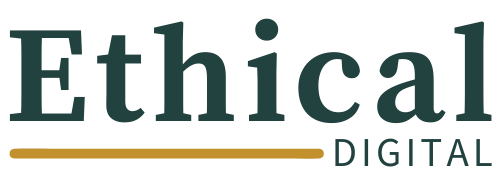ED Whistleblower Policy
Whistleblower Policy
At Ethical Digital (ED), we are committed to maintaining an environment of honesty and integrity. As employees and representatives of ED, it is our responsibility to comply with all applicable laws and regulations and to uphold ethical practices in every aspect of our work.
Protection from Retaliation
ED is committed to protecting whistleblowers from any form of retaliation. If you report a suspected violation of laws, regulations, or ethical standards in good faith, you will not face any adverse consequences for speaking up. Retaliation against anyone who makes a report in good faith is strictly prohibited.
Consequences of Retaliation
Any employee who retaliates against an individual who has reported a violation in good faith will face disciplinary action, up to and including possible termination of employment.
Reporting Mechanisms and Protection
Reports of suspected violations can be submitted confidentially or anonymously. We take these reports seriously and will protect your identity as much as possible, consistent with the need to conduct a thorough investigation. Your report will be handled with the utmost care and attention to ensure the integrity of the process and safeguard against retaliation.
At ED, we value transparency and accountability. If you suspect a violation, please report it with confidence, knowing that we are committed to ensuring your protection.
Grievance Policy for Employees and the Public
1. Purpose
This policy outlines the company's commitment to providing a transparent, fair, and effective process for addressing grievances raised by employees and the public. The company values stakeholder feedback and strives to address concerns promptly and with fairness.
2. Grievance Submission
The company provides a grievance submission form on its website, along with other appropriate methods (e.g., email, phone) for stakeholders (employees and the public) to raise grievances related to the company and its operations. The grievance form allows stakeholders to submit their concerns easily and ensures a formal record of each grievance.
3. Grievance Process Information
When a grievance is submitted, the company ensures that the stakeholder receives clear information regarding the grievance process. This information includes the following:
3.1. Grounds for Accepting a Grievance
Grievances may be accepted based on concerns related to:
Company policies, practices, or operations
Treatment or conduct by company employees or representatives
Violations of ethical standards or legal requirements
Any matter negatively impacting the well-being of employees or the public in relation to the company's operations
3.2. Grievance Process Steps and Deadlines
The company commits to handling grievances efficiently. The grievance process involves the following steps:
Step 1: Acknowledgment of receipt of the grievance (within 3 business days).
Step 2: Review and investigation of the grievance (within 10 business days).
Step 3: Communicating an initial response or request for additional information, if necessary (within 15 business days).
Step 4: Final resolution and feedback to the stakeholder (within 30 business days).
The targeted deadlines are intended to ensure timely and effective management of grievances.
3.3. Resolution Facilitation
The company will ensure that a resolution to the grievance is reached through a fair and impartial process. This may involve:
Mediation or discussion with relevant parties involved
Policy or procedural changes where necessary
Clarifications or corrective actions as deemed appropriate
The goal is to resolve grievances in a manner that addresses the concern while maintaining transparency.
4. Communication and Outcome of Grievance Process
The company ensures regular communication with stakeholders throughout the grievance process:
4.1. Regular Updates and Resolution Confirmation
Stakeholders will be informed at each stage of the grievance process. Upon reaching a resolution, the company will communicate the outcome to the stakeholder, including any actions taken or changes made as a result of the grievance. If the grievance has been resolved, the company will confirm this outcome and provide a summary of the resolution.
4.2. Rationale for Non-Acceptance of a Grievance
If the grievance raised is not accepted or falls outside the scope of the grievance process, the company will provide a clear rationale for why the issue was not accepted as a grievance. This explanation will be provided in writing to the stakeholder, outlining the reasons for the decision.
5. Confidentiality and Retaliation Protection
The company ensures confidentiality throughout the grievance process, where appropriate, and protects individuals from retaliation or discrimination for raising a grievance in good faith. Any acts of retaliation will be treated as serious violations and may result in disciplinary action.
6. Policy Review
This policy will be reviewed regularly to ensure its continued effectiveness and alignment with best practices in grievance management.
End of Policy

